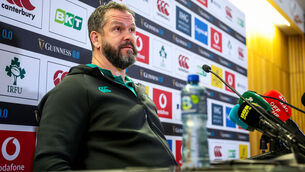Out of the shadows and into the light, the Azzurri quest to compete will one day bear fruit
FOR all the talk of a wide open contest in this season’s Six Nations Championship there hasn’t been too much talk of an Italian challenge. And rightly so.
After 11 seasons as the sixth nation in European rugby’s battle of wills, there is little to suggest the Romans have done anything to suggest they have earned their place at the top table.















